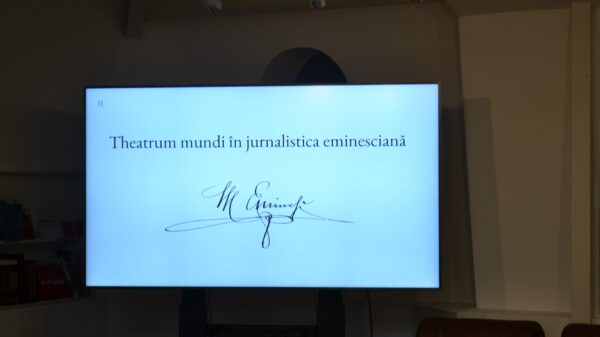I started in the local press 32 years ago and things have changed radically. From a lead pencil to more and more efficient printing presses, from a pen and pencil to write articles dictated to secretaries (after the material was checked and corrected by a section deputy, then by the chief, then by deputy editors, etc) to a typewriter, a scrabble on a computer and a laptop on which I can make my own newspaper. The technological distance is huge, but the quality has been falling all the time, print newspapers have closed down locally in their own right, but also nationally. Because of increasingly expensive paper, publications have gone under water and look like election flyers. The large format is no longer enough, as tastes have changed under the avalanche of the Net, where everyone thinks they are a journalist if they republish a story they saw on TV and interpret it. One by one, professional journalists have been banished or marginalized for being inconvenient. Such as Tolontan, the most recent case, where a trust has put gambling money on a pedestal to the detriment of journalistic activity.
Under attack from politicians and businessmen, the press has turned from the watchdog of democracy into a pet pest. Especially locally. This is where the managerial skills of the bosses, who, generally with pecuniary interests or as players in the political market, have come up with solutions to keep (often) futile futile fads alive, have intervened.
Survival is below journalistic deontology, but above average in the business world. The first solution is obviously related to doing business with the state. The institutions approached for contracts are town halls and county councils, because I am referring strictly to the local press. The contracts are not large, but drops from the local budget are rhythmically trickling into the pockets of press owners. And you can see it when you open a newspaper still in print, where the clutter of press releases is akin to the migration of sardines. You don’t see a dolphin or a good story in the deluge of advertising information. Politicians, in turn, are directly or covertly involved in business, and often buy their silence and applause by advertising whatever they have in their backyard (salons, beauty parlors, construction firms, etc.).
The second solution found by inventive patrons is to organize events: the best specialist in anything, Trophy Y, Gala X and so on. This brings in good money, but the financial source is no longer exclusively from the political arena, but also from serious business people in the fields concerned.
And finally we come to the serious but rara avis press, which is printed virtually only by freelancers. They set up their websites alone or in teams, then try to keep up with the times with podcasts, Recorder-style investigations or simply (video) news with on-the-spot commentary (as the excellent News Bucovina does). Of course, the financial side is never rosy, but survival on the edge. There are still patrons who contribute to support courageous press projects. Very few, but more compared to the readers who donate.
Thus, the chance for press oases clings to the video side, where views can bring in revenue without giving in deontologically. That is until an army of trolls jumps in to block that channel, and then journalists will fall into the pit.
One from which they will get up and try again. And one more time. Until they break down physically and mentally, because financially they’ve been financially knackered for too long.
Another way for the local press to survive is to apply for international grants, but journalists don’t have the time or the skills to access these funds. But they may find support in organizations founded by Dragoș Stanca, a decent online guru who raises funds for serious press (whether the site is local or national). Hope is still flickering on the financial front, but the fuse is almost out on professional journalists. And a genuine press school is almost impossible to achieve. Almost. We’ll see if the press will be able to squeak after the miracle where the impossible becomes possible.







